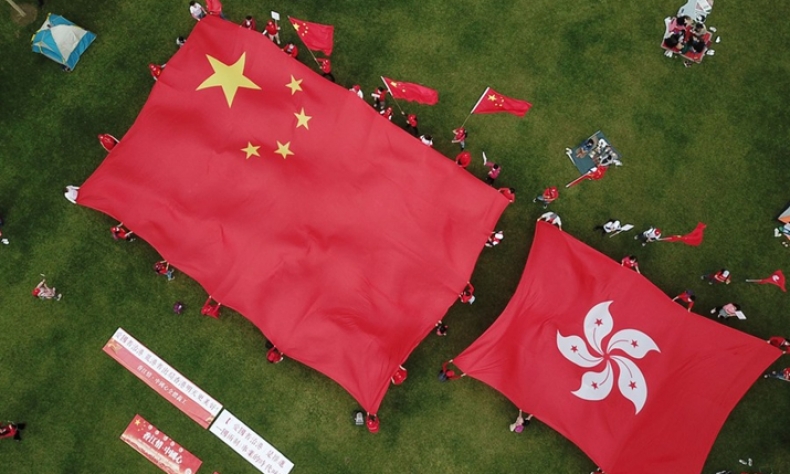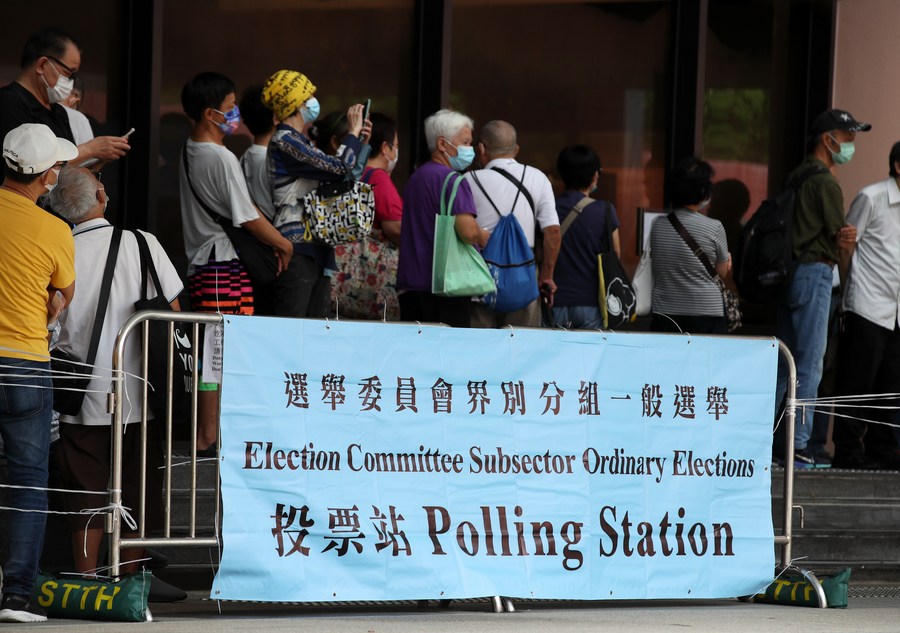Why Do Hong Kong Election Committee Elections Attract Attention Worldwide?

The purpose of improving Hong Kong’s electoral system is to serve the well-being of the public, focus on solving deep-seated problems, develop the economy, improve the people’s livelihood and maintain Hong Kong’s long-term prosperity and stability.
The 2021 Hong Kong Election Committee’s subsector ordinary elections kicked off on September 19. Six polling stations opened across the city. This is the first of the three elections under Hong Kong’s new electoral system, and attracts attention worldwide. This election is of great significance, for it will lay a good foundation for the election of the seventh Legislative Council which is scheduled this December and the election of the Chief Executive next March, but also it will make Hong Kong society see the advantages of the new electoral system. The election is to further boost the transformation of Hong Kong society from chaos to stability and prosperity.
In 2019, the extradition bill incident swept through Hong Kong. Supported by some foreign and external forces, it soon evolved into a protracted unrest. Various violent and criminal activities ran wild on the streets in an attempt to paralyze the Hong Kong SAR government. Actually, it was a “color revolution” purposely designed to seize the control of the city, by using the loopholes and defects in the electoral system, aiming to replace the Chief Executive and the Legislative Council members. With the infiltration of external forces, some anti-China and trouble-making culprits entered the organs and other governance structures of the HKSAR through elections, inciting confrontation and advocating “Hong Kong Independence.”
On March 11 this year, the fourth session of the 13th National People’s Congress adopted a decision on improving the electoral system of the Hong Kong SAR by an overwhelming majority vote. According to the decision, the Election Committee expanded from 1,200 members in four sectors to 1,500 members in five sectors, thus greatly enhancing broad representation and balanced participation. Outstanding talents such as university presidents and academicians are to be included as new delegates along with grass-roots ordinary workers, which will better respond to the demands of the Hong Kong people.

Meanwhile, the Candidate Eligibility Review Committee was introduced into the city’s new electoral system, which was considered to be a key link in the implementation of “patriots administering Hong Kong”. The new system will close the institutional loopholes allowing anti-China and trouble-making culprits to enter the governance structures of the HKSAR, and will also prevent external forces from disrupting Hong Kong and hindering China’s development.
People governing Hong Kong in the future will not only be those who love China and Hong Kong and sincerely serve the long-term interests of the HKSAR, but also be political talents who are capable, and willing to take responsibilities and face up to difficulties. The chronic problems that have plagued Hong Kong for decades are expected to be effectively alleviated.
Hong Kong’s new electoral system will bring new opportunities and a new future to the people of Hong Kong. It’s sure to cut off the wishful thinking of those offenders who are anti-China and bring chaos to Hong Kong. Those offenders, who coerce public opinions under the guise of “democracy” and keep on causing unrest and undermining the rule of law in Hong Kong, have been or will be subject to legal enforcement. They either have ceased their illegal activities or have fled.
Some politicians in the West raved about “stand with Hong Kong people”, but they just want to stand with the agents they supported and funded. These agents only account for a tiny minority of the millions of residents in Hong Kong.
The purpose of improving Hong Kong’s electoral system is to serve the well-being of the public, focus on solving deep-seated problems, develop the economy, improve the people’s livelihood and maintain Hong Kong’s long-term prosperity and stability.
 Facebook
Facebook
 Twitter
Twitter
 Linkedin
Linkedin
 Google +
Google +










